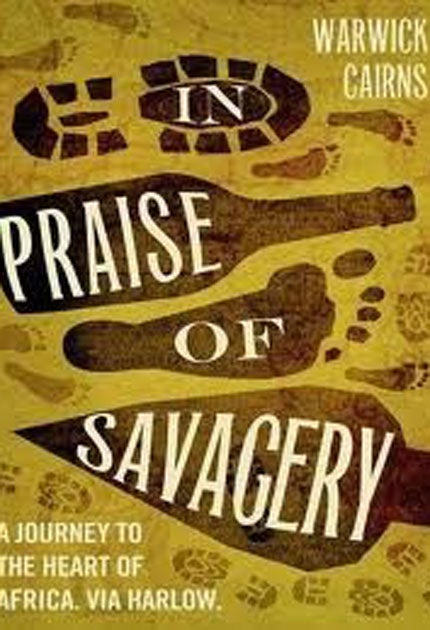In Praise of Savagery, By Warwick Cairns
A droll trip with two soul mates

Your support helps us to tell the story
From reproductive rights to climate change to Big Tech, The Independent is on the ground when the story is developing. Whether it's investigating the financials of Elon Musk's pro-Trump PAC or producing our latest documentary, 'The A Word', which shines a light on the American women fighting for reproductive rights, we know how important it is to parse out the facts from the messaging.
At such a critical moment in US history, we need reporters on the ground. Your donation allows us to keep sending journalists to speak to both sides of the story.
The Independent is trusted by Americans across the entire political spectrum. And unlike many other quality news outlets, we choose not to lock Americans out of our reporting and analysis with paywalls. We believe quality journalism should be available to everyone, paid for by those who can afford it.
Your support makes all the difference.In his late teens, Warwick Cairns went to a talk on an estate in Harlow New Town. The speaker, a "famous explorer", silenced the room with his pre-war Etonian drawl and his opening statement: "In the past 50 years, we have wiped out the inheritance of the previous 500." Cairns soon fell under the spell of Wilfred Thesiger, whose crossings of the Empty Quarter of the Arabian desert, and willingness to endure extreme hardships in lands from which no previous European had returned alive, made him a deity among travel writers.
Thesiger told Cairns to let him know if he went exploring himself; when the younger man did, he received a £300 cheque with a note simply stating: "Don't tell others". Cairns visited Thesiger in his Chelsea apartment to give an account of his journeys (and was pressed by his teetotaller host to down a half pint of sherry), and was later invited to see him in Kenya, where this imposing relic spent much of his latter years.
Plenty of books have been written about Thesiger, but Cairns's moments with the great Wilfred are more than enough to justify adding to the literature. His is not just a homage to Thesiger's view that the nobility of ancient ways of life was to be treasured. It is also a deeply conservative and often funny meditation on the odd choices mankind has made in the name of progress: "The average 'lunch hour' in my part of the world now lasts 22 minutes and consists, mostly, of a pre-packed supermarket sandwich consumed at one's desk". Whereas more "primitive" peoples, such as the pastoralist tribes Thesiger lived among in Kenya, effectively finish their day's work by lunchtime.
Cairns interleaves chapters recounting Thesiger's early expedition to find the source of the Awash River in the ferocious Sultanate of Aussa with his amusing descriptions of an upbringing in an area whose novelty was supposed to represent the triumph of late 20th-century civilisation. "Did you go to Eton?" asks Thesiger. Cairns "didn't think he would have been too familiar with the various comprehensive establishments of the London Borough of Barking and Dagenham", so didn't elucidate further. But the pair shared the belief that Western man pays for his mobiles "dearly... with our lives and our freedom". This is a touching tribute to the eminently patrician Thesiger by a boy from Barking: separated by class and time, but fellow-souls nevertheless.
Join our commenting forum
Join thought-provoking conversations, follow other Independent readers and see their replies
Comments